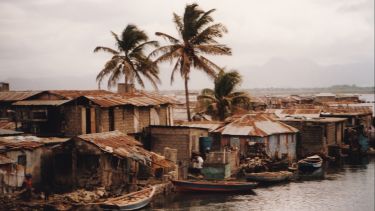Nous souffrons tous d’Alzheimer [...] [on] y pense et puis [on] oublie.
Raoul Peck
Le Profit et Rien d’Autre, 2001
We live in a world in which we swiftly forget and move on from historical events of trauma and oppression. According to Raoul Peck, however, it is important that we revisit these painful moments so that history does not repeat itself.
Haïti: la tragédie, histoire, politique, et littérature de l'époque coloniale à nos jours is a module that does just that. It covers the history and politics of Haiti from the colonial period up until the present day through an analysis of the country’s public affairs and literature. The course mostly focuses on Western imperialism and how the post-colonial relationship between countries such as France and the US has hindered Haiti’s development as a sovereign state.
During the first semester, you will study the French and Haitian revolution, the American occupation and the massacre of 1937 amongst other things. The second semester concentrates on the dictatorships of François and Jean-Claude Duvalier, Aristide’s presidency, and the 2010 Haitian earthquake. Your understanding of the country’s history will be enhanced by studying literature such as C.L.R. James’ novel The Black Jacobins, L’Autre Face de la Mer and Les Intouchables by Louis-Philippe Dalembert, Bois d'Ébène by Jacques Roumain and Le Profit et Rien d’Autre by Raoul Peck. Assessment takes the form of two essays and a podcast.
"Personally, this was one of my favourite modules of the final year because it was such an eye opener."
Grace Cordeaux, BA English and French
My favourite part of the course was studying the literature of Louis-Philippe Dalembert. I found L’Autre Face de la Mer and Les Intouchables particularly raw and compelling and they are based on true historical events. Whilst the first novel focuses on the dictatorship of Papa Doc and the 1937 massacre, the ambiguous setting of the short story allows for a commentary on the detrimental persistence of colonialism in former French colonies.
These narratives were made all the more powerful as they came at the end of the course. We therefore had a firm understanding of the historical context referenced in the stories. Raoul Peck’s documentary Le Profit et Rien d’Autre was another inspiring work and it has really changed my perspective on capitalism and the physical and psychological violence associated with it.
I would really recommend choosing this module. Not only will you gain a broad understanding of Haiti’s history, but you will also develop an awareness of the neo-colonial oppression that persists in the country.


